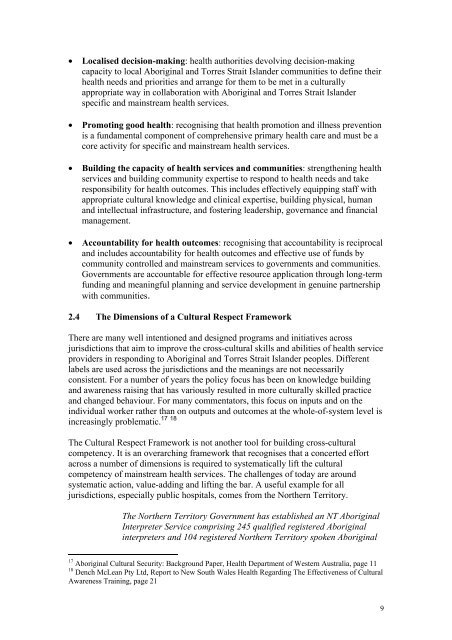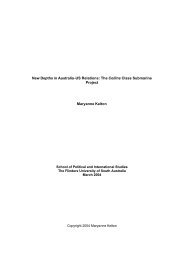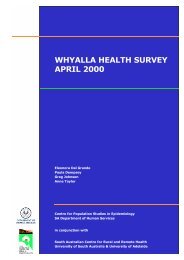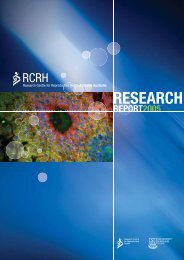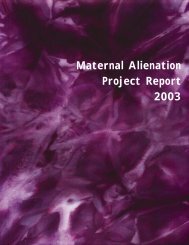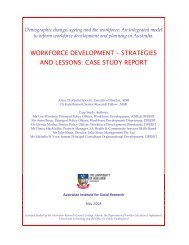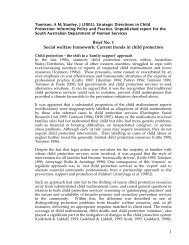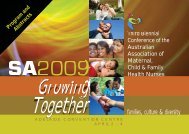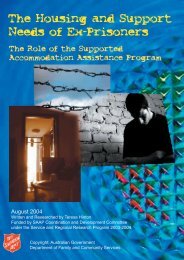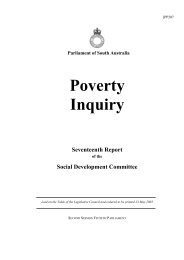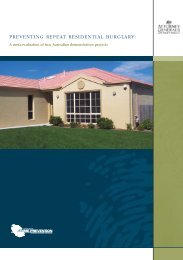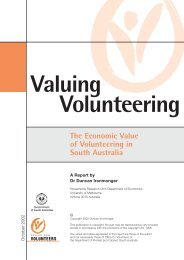cultural respect framework cultural respect framework - SA.Gov.au
cultural respect framework cultural respect framework - SA.Gov.au
cultural respect framework cultural respect framework - SA.Gov.au
- No tags were found...
Create successful ePaper yourself
Turn your PDF publications into a flip-book with our unique Google optimized e-Paper software.
• Localised decision-making: health <strong>au</strong>thorities devolving decision-makingcapacity to local Aboriginal and Torres Strait Islander communities to define theirhealth needs and priorities and arrange for them to be met in a <strong>cultural</strong>lyappropriate way in collaboration with Aboriginal and Torres Strait Islanderspecific and mainstream health services.• Promoting good health: recognising that health promotion and illness preventionis a fundamental component of comprehensive primary health care and must be acore activity for specific and mainstream health services.• Building the capacity of health services and communities: strengthening healthservices and building community expertise to respond to health needs and takeresponsibility for health outcomes. This includes effectively equipping staff withappropriate <strong>cultural</strong> knowledge and clinical expertise, building physical, humanand intellectual infrastructure, and fostering leadership, governance and financialmanagement.• Accountability for health outcomes: recognising that accountability is reciprocaland includes accountability for health outcomes and effective use of funds bycommunity controlled and mainstream services to governments and communities.<strong>Gov</strong>ernments are accountable for effective resource application through long-termfunding and meaningful planning and service development in genuine partnershipwith communities.2.4 The Dimensions of a Cultural Respect FrameworkThere are many well intentioned and designed programs and initiatives acrossjurisdictions that aim to improve the cross-<strong>cultural</strong> skills and abilities of health serviceproviders in responding to Aboriginal and Torres Strait Islander peoples. Differentlabels are used across the jurisdictions and the meanings are not necessarilyconsistent. For a number of years the policy focus has been on knowledge buildingand awareness raising that has variously resulted in more <strong>cultural</strong>ly skilled practiceand changed behaviour. For many commentators, this focus on inputs and on theindividual worker rather than on outputs and outcomes at the whole-of-system level is17 18increasingly problematic.The Cultural Respect Framework is not another tool for building cross-<strong>cultural</strong>competency. It is an overarching <strong>framework</strong> that recognises that a concerted effortacross a number of dimensions is required to systematically lift the <strong>cultural</strong>competency of mainstream health services. The challenges of today are aroundsystematic action, value-adding and lifting the bar. A useful example for alljurisdictions, especially public hospitals, comes from the Northern Territory.The Northern Territory <strong>Gov</strong>ernment has established an NT AboriginalInterpreter Service comprising 245 qualified registered Aboriginalinterpreters and 104 registered Northern Territory spoken Aboriginal17 Aboriginal Cultural Security: Background Paper, Health Department of Western Australia, page 1118 Dench McLean Pty Ltd, Report to New South Wales Health Regarding The Effectiveness of CulturalAwareness Training, page 219


